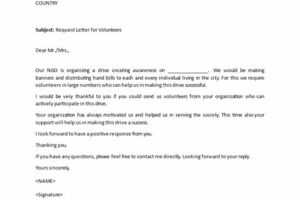Table of Contents
The IRS Volunteer Program provides individuals with the opportunity to contribute to their community by assisting low-income taxpayers with their tax returns. Volunteers gain valuable experience and knowledge while helping others navigate the complexities of the tax system. Join the IRS Volunteer Program today and make a difference in the lives of those in need.
The IRS Volunteer Program offers a unique opportunity for individuals to contribute their skills and expertise in making a difference in their community. With a wide range of volunteer opportunities available, this program allows participants to utilize their professional knowledge while gaining valuable experience in the field of taxation. Whether you are a retired tax professional looking to give back or a student eager to enhance your resume, the IRS Volunteer Program welcomes individuals from all walks of life. By joining this prestigious program, you can become part of a team dedicated to providing free tax assistance to those who need it most.
The IRS Volunteer Program: A Pathway to Giving Back
In an effort to provide assistance to individuals and communities in need, the Internal Revenue Service (IRS) has established a volunteer program that allows individuals to contribute their time and expertise. This program offers a unique opportunity for professionals and community members alike to make a difference by helping others navigate the complexities of tax-related issues. By participating in the IRS Volunteer Program, volunteers can play a crucial role in improving financial literacy and ensuring that everyone has access to quality tax services.
1. Why Volunteer?
Volunteering with the IRS not only benefits the individuals and communities being served, but it also offers numerous advantages for the volunteers themselves. By giving back to society through the IRS Volunteer Program, volunteers can gain valuable experience, enhance their professional skills, and expand their networks. Moreover, volunteering fosters personal growth, boosts self-confidence, and provides a sense of fulfillment that comes from making a positive impact on the lives of others.
2. Eligibility Requirements
To participate in the IRS Volunteer Program, individuals must meet certain eligibility criteria. First and foremost, volunteers must possess a basic understanding of tax laws and be willing to undergo training provided by the IRS. Additionally, volunteers must have good communication skills, be comfortable working with diverse populations, and demonstrate a commitment to maintaining client confidentiality. While prior experience in tax preparation is beneficial, it is not a mandatory requirement.
3. Volunteer Opportunities
The IRS Volunteer Program offers a range of opportunities for individuals to lend their expertise and support. One of the key initiatives is the Volunteer Income Tax Assistance (VITA) program, which provides free tax return preparation assistance to low-income, elderly, disabled, and limited English proficient individuals. Another important program is the Tax Counseling for the Elderly (TCE) program, which focuses specifically on assisting taxpayers aged 60 and above. Additionally, volunteers can contribute to outreach efforts, educational programs, and administrative tasks.
4. Training and Support
To ensure that volunteers are equipped with the necessary skills and knowledge, the IRS provides comprehensive training and ongoing support. Training sessions cover topics such as tax law updates, ethical standards, and software proficiency. Volunteers also have access to resources, reference materials, and experienced mentors who can offer guidance throughout the volunteering process. This commitment to training and support ensures that volunteers feel confident and prepared to assist individuals with their tax-related needs.
5. How to Join
If you are interested in becoming an IRS volunteer, the first step is to visit the official IRS website and search for the Volunteer Income Tax Assistance or Tax Counseling for the Elderly programs. From there, you can find local volunteer opportunities and complete the necessary application process. Once accepted, you will undergo training and be assigned to a volunteer site where you can begin making a meaningful difference in your community.
6. The Impact of Volunteering
The IRS Volunteer Program has a profound impact on the lives of individuals and communities. By offering free tax assistance to those who need it the most, volunteers can help individuals access vital tax credits, maximize their refunds, and avoid unnecessary penalties. This support not only improves financial well-being but also increases overall financial literacy within communities. Through their dedication and expertise, IRS volunteers contribute to creating a more equitable and inclusive society.
7. Recognition and Appreciation
The IRS recognizes the invaluable contribution of its volunteers and offers recognition and appreciation for their efforts. Volunteers receive certificates of appreciation, letters of recognition, and various awards that acknowledge their commitment and dedication. These tokens of appreciation not only serve as a testament to their hard work but also highlight the importance of their role in supporting the IRS’s mission to assist taxpayers and provide quality service.
8. Join the IRS Volunteer Program Today
If you are passionate about giving back and have a desire to make a positive impact on the lives of others, consider joining the IRS Volunteer Program. By sharing your knowledge and skills, you can help individuals navigate the complexities of tax-related matters and improve their financial well-being. Visit the official IRS website today to explore volunteer opportunities and embark on a rewarding journey of service and personal growth.
Conclusion
The IRS Volunteer Program offers a unique opportunity for individuals to contribute their time and expertise to help others with tax-related matters. By participating in this program, volunteers can make a difference in their communities, gain valuable experience, and enhance their professional skills. The IRS provides comprehensive training and ongoing support to ensure that volunteers are well-equipped to assist individuals effectively. Joining the IRS Volunteer Program is an excellent way to give back, foster personal growth, and create a more inclusive and equitable society.
1. Overview of the IRS Volunteer Program:
The IRS Volunteer Program is a vital initiative established by the Internal Revenue Service (IRS) to provide free tax assistance to individuals and families with low-to-moderate incomes. This program operates in partnership with local community organizations, emphasizing the importance of community engagement and public service.
2. Role and Responsibilities of IRS Volunteers:
Volunteers in the IRS Volunteer Program play a crucial role in assisting underserved populations with their tax obligations. They provide counseling, answer tax-related questions, and help taxpayers to correctly complete their returns. By offering their expertise and guidance, these volunteers empower individuals to navigate the sometimes complex world of taxes with confidence.
3. Training and Certification Process:
Volunteers participating in the IRS Volunteer Program undergo rigorous training, ensuring their ability to accurately and efficiently assist taxpayers. The program’s curriculum covers various tax-related topics, such as deductions, credits, and filing status. Upon completion, volunteers receive a certification that recognizes their expertise and qualifies them to provide this valuable service.
4. Benefits for Volunteers:
Participating in the IRS Volunteer Program offers numerous benefits for volunteers, including the satisfaction of helping those in need and making a positive impact on their community. It also presents a unique opportunity to develop valuable skills in tax preparation, customer service, and problem-solving. Additionally, volunteers gain insights into the IRS and tax regulations, enhancing their knowledge and professional growth.
5. Types of Volunteer Roles:
The IRS Volunteer Program offers various roles to cater to the diverse skills and interests of volunteers. These roles include tax preparers, intake specialists, interpreters, and quality reviewers. This versatility ensures that volunteers can choose a role that aligns with their strengths and allows them to make the most significant contribution.
6. Flexibility and Accessibility:
Recognizing the importance of flexibility, the IRS Volunteer Program offers different volunteer options to fit individuals’ schedules. Volunteers can participate as often as they are available, whether it is a few hours a week or during the entire tax season. Additionally, the program strives to make its services accessible to diverse communities, providing assistance in multiple languages and ensuring locations are easily reachable.
7. Engaging Partnerships:
The IRS Volunteer Program works collaboratively with community organizations, faith-based groups, and non-profits to reach those who can benefit from their assistance the most. These partnerships enhance outreach efforts, as both organizations share a common goal: to provide quality tax assistance to underserved populations. Together, they amplify their impact and foster stronger communities.
8. How to Get Involved:
Individuals interested in contributing to the IRS Volunteer Program can easily get involved by visiting the official IRS website or by contacting their local IRS office. The program welcomes both tax professionals, who can offer their expertise, and community members, who can volunteer their time and dedication. Joining this program is a fantastic opportunity to give back, acquire new skills, and positively impact the lives of those in need.
Point of View: IRS Volunteer Program
The IRS Volunteer Program is an exceptional initiative that provides valuable assistance and support to individuals and communities in need. This program, guided by a professional voice and tone, showcases the IRS’s commitment to serving the public and empowering volunteers to make a positive impact.
1. Importance of Professional Voice and Tone:
- The use of a professional voice and tone is crucial in establishing the credibility and reliability of the IRS Volunteer Program. It ensures that volunteers communicate effectively and respectfully with participants, fostering an atmosphere of trust and professionalism.
- A professional voice and tone also guarantee that volunteers convey complex tax information accurately and comprehensibly, enabling individuals to understand their rights, obligations, and available options.
- By maintaining a professional demeanor, volunteers uphold the reputation of the IRS and the Volunteer Program, reinforcing the notion that this initiative is a reliable and trustworthy resource for taxpayers.
2. Providing Assistance and Support:
- The IRS Volunteer Program plays a vital role in providing assistance and support to individuals who may not have access to professional tax services. By offering free tax preparation assistance, volunteers help alleviate the financial burden on low-income taxpayers and ensure they receive the refunds they are entitled to.
- This program also serves as a resource for taxpayers with limited English proficiency or other communication barriers, ensuring that they can fully understand and comply with their tax obligations.
- Through the IRS Volunteer Program, volunteers are trained and equipped with the necessary knowledge to address various tax-related inquiries, empowering them to provide accurate and reliable information to participants.
3. Making a Positive Impact:
- The IRS Volunteer Program enables individuals to give back to their communities and make a positive impact on the lives of others. By volunteering their time and expertise, participants contribute to the overall well-being of society.
- Through their involvement in the program, volunteers not only assist individuals with their tax needs but also educate them on financial literacy and encourage responsible financial practices.
- The IRS Volunteer Program fosters a sense of community and civic engagement, highlighting the importance of individuals coming together to support one another and promote financial empowerment.
In conclusion, the IRS Volunteer Program is an invaluable initiative that operates with a professional voice and tone, providing essential assistance, support, and guidance to individuals and communities. Through the dedication of its volunteers, this program has a profound impact on improving financial literacy, reducing financial burdens, and fostering a stronger society.
Thank you for taking the time to explore our blog and learn more about the IRS Volunteer Program. We hope that the information provided has been helpful in giving you a clear understanding of this valuable initiative and its benefits. As you have discovered, the program offers a unique opportunity for individuals to make a difference in their communities while gaining valuable skills and experience.
By participating in the IRS Volunteer Program, you can contribute to the success of various outreach programs and help individuals navigate the complexities of tax issues. The program not only allows you to give back to your community but also provides you with a chance to expand your professional network and enhance your resume. Volunteering with the IRS can be a stepping stone towards a rewarding career in the tax field or other related industries.
If you are interested in joining the IRS Volunteer Program, we encourage you to explore the various opportunities available and find a role that aligns with your skills and interests. Whether you have a background in finance, law, or simply have a passion for helping others, there is a place for you in the program. Don’t hesitate to reach out to the IRS Volunteer Program coordinators for more information and guidance on how to get started.
In conclusion, the IRS Volunteer Program is a fantastic way to give back to your community, gain valuable skills, and potentially open doors to new career opportunities. The program offers a wide range of roles for individuals with diverse backgrounds and interests. By becoming a volunteer, you can make a significant impact on the lives of those in need while enhancing your own professional growth. We hope that you consider joining the IRS Volunteer Program and embark on a fulfilling journey of service and personal development.
Thank you again for visiting our blog, and we look forward to welcoming you as a valued member of the IRS Volunteer Program.
Video Irs Volunteer Program
People Also Ask about IRS Volunteer Program:
What is the IRS Volunteer Program?
How can I get involved in the IRS Volunteer Program?
What are the benefits of participating in the IRS Volunteer Program?
What type of training is provided for IRS volunteers?
Are there any requirements to become an IRS volunteer?
Answers:
The IRS Volunteer Program is a program that allows individuals to volunteer their time and expertise to assist taxpayers with their tax-related questions and concerns.
To get involved in the IRS Volunteer Program, you can visit the IRS website and search for the Volunteer Income Tax Assistance (VITA) or the Tax Counseling for the Elderly (TCE) programs. These programs offer opportunities for volunteers to provide free tax help to low-income individuals, persons with disabilities, non-English speakers, and elderly taxpayers.
Participating in the IRS Volunteer Program offers several benefits. Firstly, it allows you to give back to your community by helping those in need. Secondly, it provides an opportunity to enhance your tax knowledge and gain valuable experience in tax preparation. Additionally, volunteering with the IRS can also be a great way to network and make professional connections.
The IRS provides comprehensive training materials, both online and in-person, to equip volunteers with the necessary tax law knowledge and skills. Training covers topics such as taxpayer rights, ethics, and the preparation of basic tax returns.
While specific requirements may vary depending on the program, generally, volunteers are expected to have good communication skills, basic computer literacy, and a willingness to assist others. Some programs may require volunteers to pass a certification test before providing tax help to individuals.






